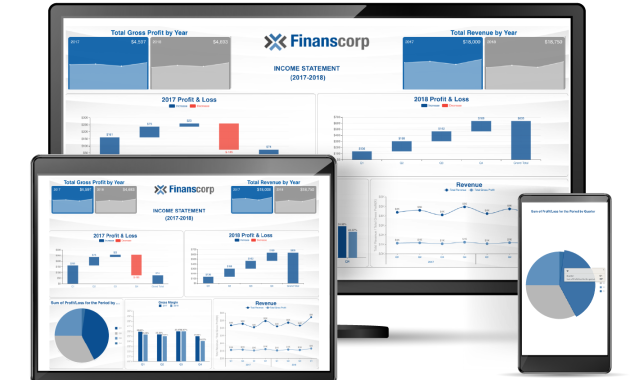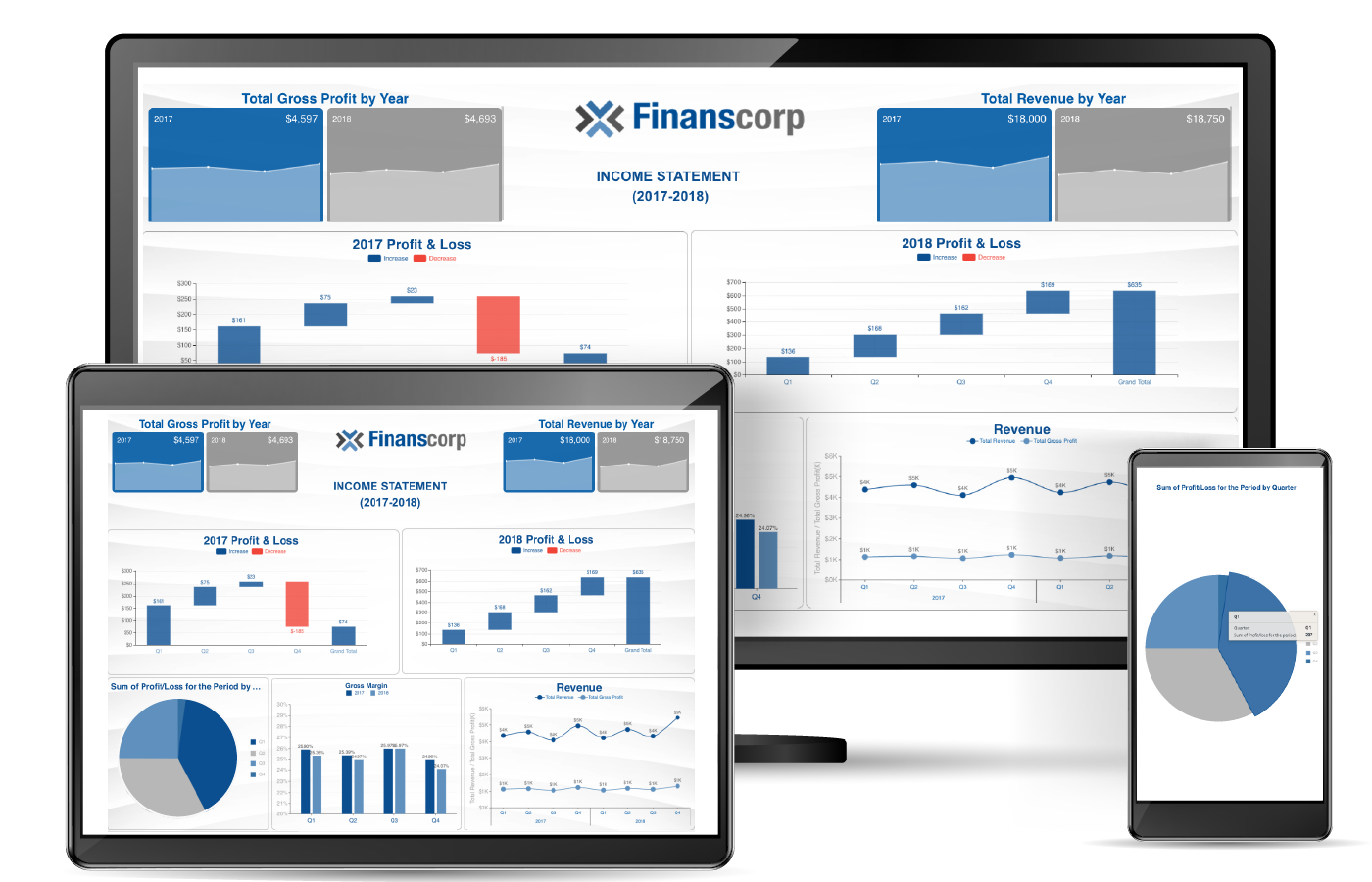
Business Intelligence Tools That Fit Any Budget: A Comprehensive Guide
In today’s data-driven world, the ability to analyze information and make informed decisions is crucial for business success. Business intelligence (BI) tools have become indispensable for organizations of all sizes. These tools provide the means to collect, process, and interpret data. This empowers businesses to gain valuable insights and improve operational efficiency. The good news is that you don’t need a Fortune 500 budget to leverage the power of BI. This comprehensive guide explores various business intelligence tools that fit any budget. We will consider the features, pricing, and suitability of each tool for different business needs.
Understanding the Value of Business Intelligence
Before diving into specific tools, it’s essential to understand the core benefits of business intelligence. BI tools transform raw data into actionable insights. This helps organizations to:
- Improve decision-making: Data-driven insights lead to better-informed choices.
- Increase efficiency: Identify and eliminate bottlenecks in processes.
- Enhance customer experience: Understand customer behavior and personalize interactions.
- Identify new opportunities: Discover market trends and untapped potential.
- Reduce costs: Optimize resource allocation and minimize waste.
The competitive advantage gained from these benefits is significant. Businesses that embrace BI are better positioned for growth and sustainability. The right business intelligence tools can level the playing field. Smaller businesses can compete more effectively with larger enterprises.
The Budget Spectrum: Options for Every Price Point
The market for business intelligence tools offers a wide range of options. These options cater to various budget constraints. From free, open-source solutions to enterprise-level platforms, there’s a tool for everyone. The key is to identify your specific needs and choose accordingly.
Free and Open-Source Business Intelligence Tools
For startups, small businesses, or those with limited budgets, free and open-source BI tools are an excellent starting point. These tools often provide core functionalities. They are a cost-effective way to explore the world of data analysis. However, they might have limited features or require more technical expertise to set up and maintain.
- Metabase: Metabase is a popular open-source BI tool. It offers an intuitive interface for data visualization and exploration. Users can create dashboards and reports without extensive coding knowledge. Metabase integrates with various databases and data sources. It provides a good balance of features and ease of use.
- Superset (Apache): Apache Superset is another powerful open-source option. It is designed for large-scale data analysis and visualization. Superset supports a wide range of data connectors and offers advanced features. These include data exploration, charting, and interactive dashboards.
- BIRT (Eclipse): BIRT (Business Intelligence and Reporting Tools) is an open-source reporting system. It is part of the Eclipse project. BIRT is primarily focused on generating reports. It offers a robust set of features for creating complex and customized reports.
These free tools are ideal for experimenting with business intelligence. They can also be used for basic data analysis and reporting. Be aware that you might need technical skills for setup and maintenance.
Budget-Friendly Business Intelligence Tools
As your business grows, you might need more advanced features and support. Several budget-friendly business intelligence tools offer a balance between cost and functionality. These tools typically have subscription-based pricing models. This makes them affordable for small to medium-sized businesses (SMBs).
- Zoho Analytics: Zoho Analytics is a cloud-based BI and analytics platform. It offers a wide range of features. These include data integration, visualization, and reporting. It is known for its user-friendly interface and affordable pricing plans.
- Microsoft Power BI: Microsoft Power BI is a powerful and versatile BI tool. It offers a free version with limited features. The paid versions provide advanced capabilities. These include data modeling, collaboration, and data governance. Power BI integrates seamlessly with other Microsoft products.
- Tableau Public: Tableau Public is a free version of Tableau. It allows users to create and share interactive data visualizations. Data is saved publicly on the Tableau Public server. This tool is perfect for learning and sharing data insights.
- Qlik Sense Cloud: Qlik Sense Cloud offers a free version. It allows users to explore data, create visualizations, and share insights. The paid versions offer more advanced features. These include data modeling and collaboration.
These tools provide a good balance between features and affordability. They are suitable for SMBs that want to leverage the power of business intelligence without breaking the bank.
Mid-Range Business Intelligence Tools
For businesses with more complex needs and larger datasets, mid-range BI tools offer more advanced features. These tools often have more robust data integration capabilities and advanced analytical features. Pricing for these tools varies depending on the features and number of users.
- Looker (Google Cloud): Looker is a powerful data analytics platform. It is now part of Google Cloud. Looker offers advanced data modeling capabilities. It also provides a user-friendly interface for data exploration and visualization. It is suitable for businesses with complex data needs.
- ThoughtSpot: ThoughtSpot is a search-driven analytics platform. It allows users to ask questions in plain language and get instant insights. ThoughtSpot is known for its ease of use and intuitive interface. It is suitable for businesses that want to empower their employees with data analysis capabilities.
- Sisense: Sisense is a BI platform that focuses on data preparation and analysis. It allows users to connect to a variety of data sources. It also offers advanced visualization and reporting capabilities. Sisense is designed for businesses with complex data needs.
These tools provide advanced features for data analysis. They are appropriate for businesses that have more complex data requirements.
Enterprise-Level Business Intelligence Tools
Large enterprises with complex data needs and significant budgets often opt for enterprise-level BI tools. These tools offer a comprehensive suite of features. They include advanced analytics, data governance, and scalability. They are often customized to meet specific business requirements.
- Oracle BI: Oracle BI is a comprehensive BI platform. It provides a wide range of features. These include data integration, data warehousing, and advanced analytics. Oracle BI is designed for large enterprises with complex data needs.
- SAP BusinessObjects: SAP BusinessObjects is a well-established BI platform. It offers a comprehensive suite of features. These include data visualization, reporting, and data governance. SAP BusinessObjects is suitable for large enterprises.
- IBM Cognos Analytics: IBM Cognos Analytics is a comprehensive BI platform. It provides a wide range of features. These include data analysis, reporting, and dashboarding. IBM Cognos Analytics is designed for large enterprises with complex data requirements.
These tools provide comprehensive features for data analysis. They are designed for large organizations with complex data needs.
Key Features to Consider When Choosing a BI Tool
When selecting a business intelligence tool, several key features should be considered. These features will help you choose the right tool for your specific needs.
- Data Integration: The ability to connect to various data sources is crucial. The tool should support the data sources your business uses. This includes databases, cloud services, and spreadsheets.
- Data Visualization: The tool should offer a variety of visualization options. This includes charts, graphs, and dashboards. This allows you to present data in an easily understandable format.
- Reporting: The tool should allow you to create and customize reports. The reports should be shareable and exportable in various formats.
- Data Analysis: The tool should provide analytical capabilities. This includes data exploration, filtering, and aggregation. It also includes advanced analytical features.
- User Interface: The tool should have an intuitive and user-friendly interface. This makes it easy for users to learn and use the tool.
- Scalability: The tool should be able to handle your current data volume. It should also be scalable to accommodate future growth.
- Collaboration: The tool should support collaboration. This allows users to share insights and work together on data analysis.
- Security: The tool should offer robust security features. This protects your data from unauthorized access.
Carefully evaluating these features will help you choose the right business intelligence tools. You can select a tool that meets your specific needs.
Implementing a Business Intelligence Solution
Implementing a business intelligence solution involves several steps. These steps ensure a successful deployment and maximize the value of the tool.
- Define your goals: Clearly define your business objectives. Identify the key performance indicators (KPIs) you want to track.
- Assess your data: Evaluate your existing data sources. Determine the quality and availability of your data.
- Choose the right tool: Select a BI tool that meets your needs. Consider your budget, features, and technical expertise.
- Integrate your data: Connect your BI tool to your data sources. Ensure data is properly integrated and transformed.
- Build dashboards and reports: Create visualizations and reports. This will help you monitor your KPIs and gain insights.
- Train your users: Provide training to your users. This will ensure they can effectively use the tool.
- Monitor and refine: Continuously monitor your BI solution. Make adjustments as needed.
Following these steps will increase the chances of a successful implementation.
Conclusion: Choosing the Right Business Intelligence Tools
Selecting the right business intelligence tools is a crucial step. It empowers your business to make data-driven decisions. The availability of tools that fit any budget makes this accessible to all businesses. From free, open-source options to enterprise-level platforms, there’s a solution for every need. By understanding your requirements, assessing your data, and considering the key features, you can choose a tool. The tool will unlock valuable insights and drive business growth.
Choosing the right business intelligence tool is a strategic decision. It can significantly impact your business performance. By carefully evaluating your needs and considering the options, you can choose a tool that empowers your team. The tool will enable them to make data-driven decisions and achieve your business goals. [See also: Best Data Visualization Tools] [See also: Data Analysis Techniques]

